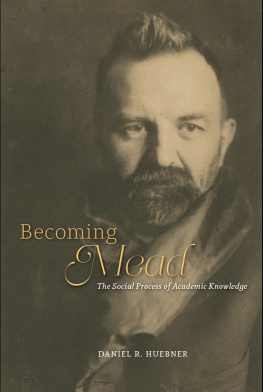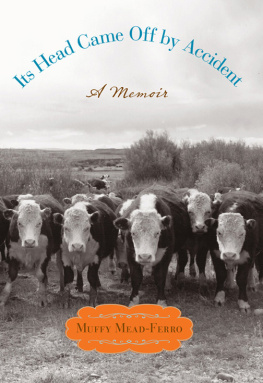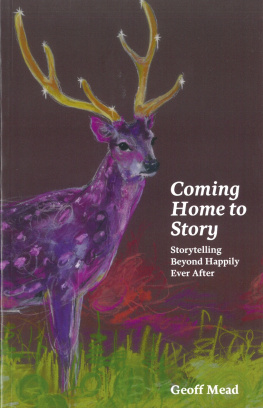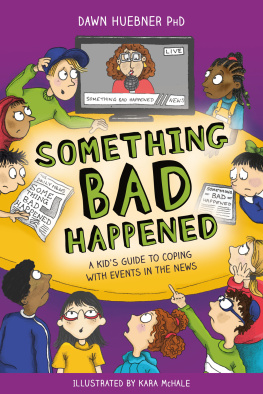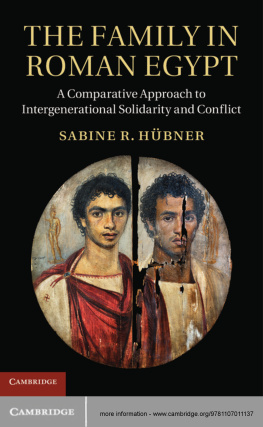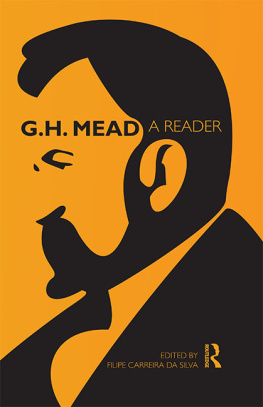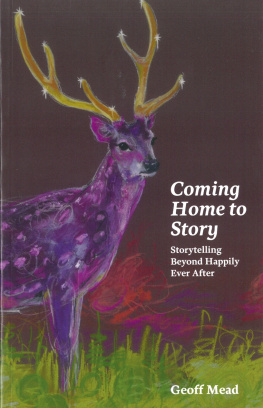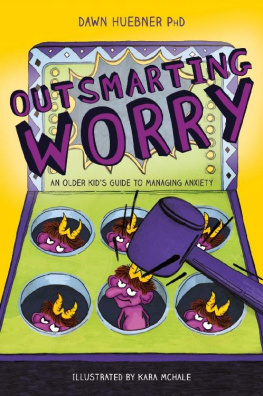Daniel R. Huebner - Becoming Mead
Here you can read online Daniel R. Huebner - Becoming Mead full text of the book (entire story) in english for free. Download pdf and epub, get meaning, cover and reviews about this ebook. year: 2014, publisher: University of Chicago Press, genre: Religion. Description of the work, (preface) as well as reviews are available. Best literature library LitArk.com created for fans of good reading and offers a wide selection of genres:
Romance novel
Science fiction
Adventure
Detective
Science
History
Home and family
Prose
Art
Politics
Computer
Non-fiction
Religion
Business
Children
Humor
Choose a favorite category and find really read worthwhile books. Enjoy immersion in the world of imagination, feel the emotions of the characters or learn something new for yourself, make an fascinating discovery.
- Book:Becoming Mead
- Author:
- Publisher:University of Chicago Press
- Genre:
- Year:2014
- Rating:3 / 5
- Favourites:Add to favourites
- Your mark:
- 60
- 1
- 2
- 3
- 4
- 5
Becoming Mead: summary, description and annotation
We offer to read an annotation, description, summary or preface (depends on what the author of the book "Becoming Mead" wrote himself). If you haven't found the necessary information about the book — write in the comments, we will try to find it.
Becoming Mead — read online for free the complete book (whole text) full work
Below is the text of the book, divided by pages. System saving the place of the last page read, allows you to conveniently read the book "Becoming Mead" online for free, without having to search again every time where you left off. Put a bookmark, and you can go to the page where you finished reading at any time.
Font size:
Interval:
Bookmark:
BECOMING MEAD
The Social Process of Academic Knowledge
DANIEL R. HUEBNER
THE UNIVERSITY OF CHICAGO PRESS
CHICAGO AND LONDON
DANIEL R. HUEBNER is assistant professor of sociology at the University of North Carolina at Greensboro.
The University of Chicago Press, Chicago 60637
The University of Chicago Press, Ltd., London
2014 by The University of Chicago
All rights reserved. Published 2014.
Printed in the United States of America
23 22 21 20 19 18 17 16 15 14 1 2 3 4 5
ISBN-13: 978-0-226-17137-1 (cloth)
ISBN-13: 978-0-226-17140-1 (paper)
ISBN-13: 978-0-226-17154-8 (e-book)
DOI: 10.7208/chicago/9780226171548.001.0001
Library of Congress Cataloging-in-Publication Data
Huebner, Daniel R., author.
Becoming Mead : the social process of academic knowledge / Daniel R. Huebner.
pages cm
Includes bibliographical references and index.
ISBN 978-0-226-17137-1 (cloth : alk. paper) ISBN 978-0-226-17140-1 (pbk. : alk. paper) ISBN 978-0-226-17154-8 (e-book)
1. Mead, George Herbert, 18631931. 2. SociologyMethodology. I. Title.
B945.M464H94 2014
301.092dc23
2014001189
 This paper meets the requirements of ANSI/NISO Z39.48-1992 (Permanence of Paper).
This paper meets the requirements of ANSI/NISO Z39.48-1992 (Permanence of Paper).
to Bob Wiley
ILLUSTRATIONS
Figures
Text Boxes
ACKNOWLEDGMENTS
I wish to express my gratitude to those people who helped make this project possible. My interest in and knowledge of the topics addressed in this book was fostered by discussions at the University of Chicago with Andrew Abbott, Elizabeth Clemens, Andreas Glaeser, Hans Joas, Ryon Lancaster, Donald Levine, John Lucy, John Levi Martin, Moishe Postone, and Robert Schwartz. Without the inexhaustible encouragement and insightful guidance of Abbott, Glaeser, and Joas, this project could not have been accomplished.
My colleagues were an outstanding source of support and commiseration throughout the research and writing. In particular, I would like to thank Mary Akchurin, Emily Art, Julia Burdick-Will, Paola Castao, Brian Cody, Michael Corey, Gordon Douglas, Suzy Smith, Michaela Soyer, and Bijan Warner for many discussions and for their camaraderie. In addition, I had the benefit of many other discussions with a large number of Chicago faculty members and students at different stages of this project from which the final product certainly improved.
In a consequential meeting, Andrew Abbott suggested I check out the manuscript collections at the University of Chicago Library, especially the notes of Ellsworth Faris from his courses with George Herbert Mead. The resulting investigation raised more questions than answers and provoked me to begin connecting the problems of interpretation of Mead and his students with my interest in the sociology of knowledge. I also had the good fortune to attend Abbotts practicum Library Methods for the Social Sciences, which contributed substantially to my education in archival and primary document research.
Researchers could hardly ask for a better home base than the Special Collections Research Center at the University of Chicago. The outstanding staff, over and above their excellent holdings, makes it a thoroughly enjoyable and productive working environment. In particular, I would like to thank Barbara Gilbert, Julia Gardner, and the many student pages for all of their assistance and patience with my incessant questions and requests. I would like to thank the helpful staff and faculty at the University of IllinoisChicago Special Collections, the American Baptist Historical Society, the Chicago History Museum, the Institute for American Thought, the University of Michigan Bentley Historical Library, the Minnesota Historical Society, the Northwestern University Special Collections, the Schlesinger Library on the History of Women in America, the Southern Illinois University Morris Library Special Collections, Richard Ford and the staff at the University of Chicago Office of the University Registrar, and the archivists and librarians across the globe who humored me by answering my odd questions and checking into collections for me. For a week in March 2010 I turned a set of desks at the Peirce Edition Project at the Institute for American Thought into a field headquarters, and had the outstanding benefit of the resources and feedback of David Pfeiffer, Andr De Tienne, and Cornelis de Waal.
Thanks also go to the many scholars (of Mead and otherwise) who have traded enthusiasm and information with me remotely or in person. I greatly appreciated discussions with chairs, co-presenters, commentators, and audiences at academic conferences, including the American Sociological Association, the Social Science History Association, the History of Science Society, and the International Sociological Association Research Committee on the History of Sociology. I would also like to thank the students in my courses for discussing issues related to my research in more detail than they likely expected. I consistently found that in preparing for class, in conducting class discussions, and in assessing student work, my own thinking was advanced by the participation of outstanding students.
I wish to express my gratitude to Doug Mitchell and Tim McGovern at the University of Chicago Press for their care and dedication in seeing this project through the editorial process, and to the manuscript reviewers for their thoughtful comments. A portion of this project was supported by an Andrew W. Mellon Foundation / University of Chicago Division of the Social Sciences Dissertation Fellowship. Sections of Fund Studies, in Knowledge for Whom? Public Sociology in the Making, ed. Christian Fleck and Andreas Hess (Farnham: Ashgate, 2014).
Finally, I would like to extend a special thank-you to my family for their unconditional love and support. It is to my mother and father, brother and sister, and my partner that I owe by far the largest debt of gratitude for continuing to shape who I am.
INTRODUCTION
One of the defining characteristics of academic scholarship in all disciplines, what makes it scholarship, is the concerted pursuit of knowledge in its many forms in collaboration with others. The knowledge produced in scholarship is not only of the objects of study but also of other scholars (scholarship as a social enterprise) and of oneself (scholarship as a self-reflexive enterprise). This is especially evident in the social sciences and humanities where the object of study is more or less immediately other humans who already create their own understandings of one another, of themselves, and of their social worlds. In the course of their practical work, scholars in the humanities and social sciences encounter questions regarding their knowledge. What and how do we know about another scholar, about others works of scholarship, and about concepts or propositions attributed to others? How do those understandings arise, change, accumulate, or disappear? These are the kinds of questions the following study pursues, and it does so by the novel focus on tracing the large body of (often controversial) knowledges made about a particular well-known individual in the human sciences: George Herbert Mead. By identifying the complex social action processes through which knowledge is produced in this case, the study contributes to the expanding literature in the sociology of knowledge and the history of the social sciences and humanities.
The following sections of the introduction outline the motivations, background, tools, and materials of the study. I begin by identifying the problematic, but not entirely unique, position Mead occupies as an individual and conceptual resource in the human sciences, and especially in sociology. This case was selected for extended, monographic examination on the basis of its problematic status and because of the extensive documentation available for such analysis. By this combination, it serves to make visible the processes through which understandings of an intellectual are produced. Following this, I identify the set of conceptual tools utilized in the analyses by drawing from recent theoretical work in the social nature of knowledge and action. The key insight proves to be in under standing knowledge as action and, hence, subject to an examination of its production in social action processes.
Next pageFont size:
Interval:
Bookmark:
Similar books «Becoming Mead»
Look at similar books to Becoming Mead. We have selected literature similar in name and meaning in the hope of providing readers with more options to find new, interesting, not yet read works.
Discussion, reviews of the book Becoming Mead and just readers' own opinions. Leave your comments, write what you think about the work, its meaning or the main characters. Specify what exactly you liked and what you didn't like, and why you think so.

